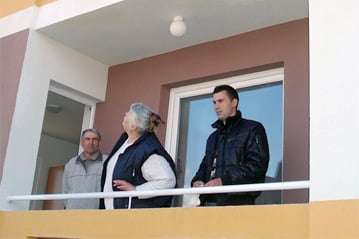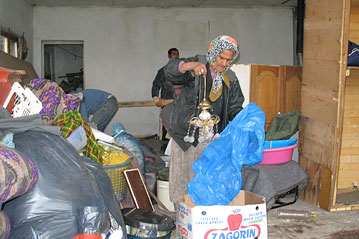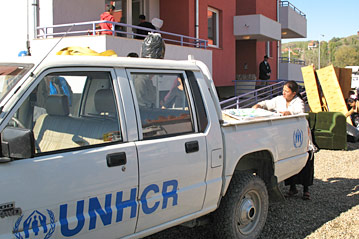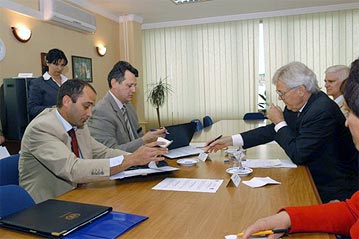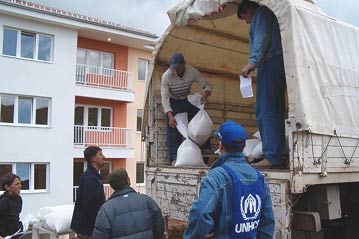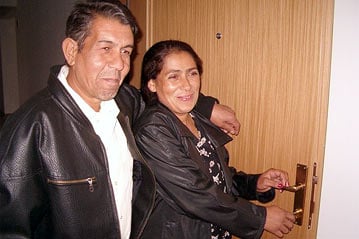UNHCR concerned over deepening FYROM refugee crisis
UNHCR concerned over deepening FYROM refugee crisis
PRISTINA, Kosovo - The U.N. High Commissioner for Refugees has appealed to governments for urgent financial support to cope with the growing humanitarian consequences of the ongoing conflict in the former Yugoslav Republic of Macedonia (FYROM).
The agency is seeking US$17.5 million to provide emergency assistance over the next six months to more than 65,000 refugees in Kosovo, some 6,000 refugees in Serbia, and to thousands more who remain internally displaced within FYROM.
Eric Morris, UNHCR's special envoy for the region, said the continuing displacement has now affected more than 100,000 people. "UNHCR must be prepared for a worst-case scenario, even though it is not too late for a peaceful solution to be found," Morris said.
Since the conflict began in late February, local organizations and community networks have played a key role in what has been thus far a successful emergency response. However, Morris cautioned that the refugee crisis has placed an enormous burden on the local population in Kosovo. The funds requested would enable UNHCR to support the many thousands of host families that have taken in the refugees. It will also provide food and other assistance to the affected population, and help prepare the groundwork for expected continued movements throughout the region.
Yesterday, the refugee agency opened a full-service registration centre in Kosovo that can be expanded to hold up to 14,000 refugees should the need arise. UNHCR, the lead agency for the refugee crisis in Kosovo, has also been identifying gaps in emergency assistance and possible longer-term needs, including shelter and heating.
UNHCR calls on the FYROM government and the ethnic Albanian armed groups to seek a lasting, peaceful solution through dialogue and to end the fighting that has endangered thousands of civilians.
"Only when all of the refugees and displaced persons in the region have been able to return to their homes will there finally be peace in Southeast Europe," Morris said.
UNHCR hopes that once a peace agreement is reached, the additional funding may be used to implement a return programme and confidence-building measures, including the rehabilitation of affected areas.

